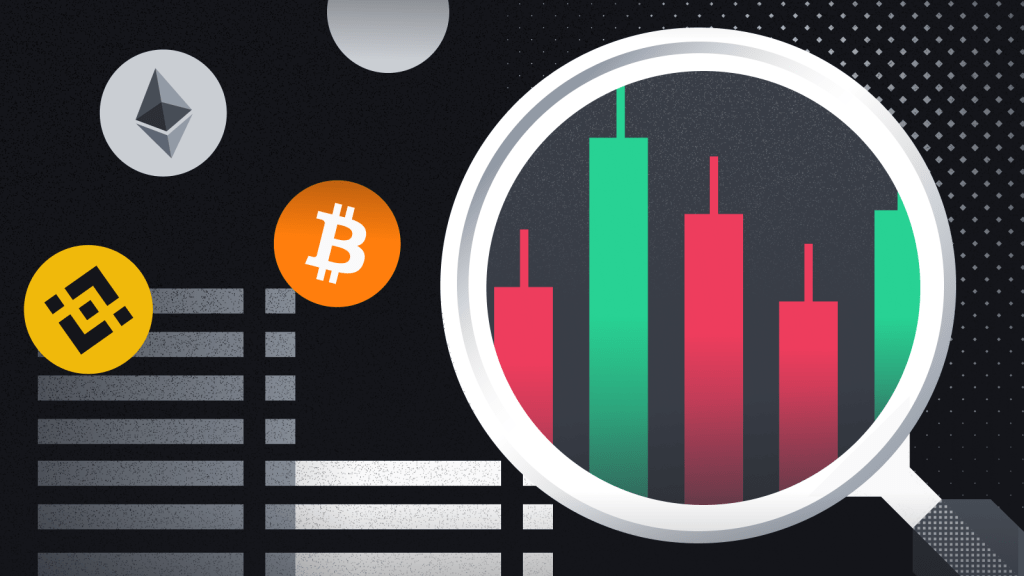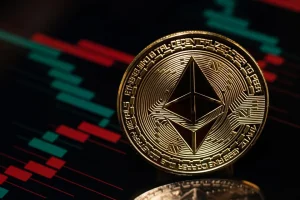Cryptocurrency trading is about taking an investment stance on the movement of a certain cryptocurrency’s price relative to the dollar (in crypto/dollar pairs) or another cryptocurrency (through crypto to crypto pairs). Due to its use of leverage, increased flexibility, and ability to take both short and long positions, CFDs (contracts for difference) are a famously preferred method of trading cryptocurrencies across the world.
Given their complexity and great potential for fast loss of capital owing to leverage, CFDs are risky financial instruments. 79% of retail investor accounts that trade CFDs experience losses. Traders should be sure of whether they fully understand how CFDs operate and if they can afford to endure the substantial risk of losing money.
The Meaning of Cryptocurrency
Cryptocurrency is a digital payment instrument that operates independently from the conventional banking system and does not rely on banks for transaction confirmation. It’s a peer-to-peer payment procedure that allows people in different locations to send and receive money without interruptions. Cryptocurrency transactions are only recorded as digital entries in an online database and do not physically exist as cash that can be exchanged in the physical world. Transactions made with bitcoin are recorded in an open database known as a public ledger. Cryptocurrency is stored in digital wallets.
Cryptocurrency Trading

Cryptocurrency gets its name from the fact that it employs encryption to validate transactions. The transfer and recording of bitcoin information between digital wallets and public ledgers necessitate advanced programming. The primary purpose of encryption is to provide security and protection for crypto assets.
Bitcoin, the first and most widely recognized cryptocurrency, was established in 2009. Cryptocurrencies have gained attention mainly because of the potential to make a profit through trading, with market speculators at times causing drastic fluctuations in coin value.
How Cryptocurrency works – Cryptocurrency Trading
Blockchain, a decentralized public ledger that is managed and updated by those who hold the currency, serves as the foundation for the operation of cryptocurrencies.
Cryptocurrencies are generated through a process called “mining” which involves using powerful computers to solve complex mathematical equations. Users can also opt to buy the currencies from intermediaries, keep them in secure digital wallets, and utilize them to complete transactions. Some of the top brokers for trading cryptocurrency are crypto.com, Binance, Kraken, coinbase, gate.io, OKX, Bybit, Kucoin, Bitstamp, Bitfinex, and Bitfly.
Holding cryptocurrencies does not signify ownership of anything concrete, rather, it gives the holder access to a key that allows them to transfer a unit of measurement or record from one person to another without the need for a trusted intermediary.
Although Bitcoin has been in existence since 2009, the potential uses of cryptocurrencies and blockchain technology continue to evolve, and more are predicted to emerge. In the future, this technology could potentially be used to trade bonds, equities and other forms of financial assets.
Since 2009 till date, there are now over 12,000 cryptocurrencies traded on the blockchain network. Some of the top currencies created after Bitcoin are Ethereum, Litecoin, Ripple (XRP), Tether (USDT), BNB, USD Coin (USDC), Cardano (ADA), Doge, Polygon (MATIC), and Binance USD (BUSD).
Types of Cryptocurrency trading
- Spot trading: This is the most common type of trading, where individuals buy and sell cryptocurrencies at their current market price.
- Margin trading: This type of trading allows individuals to trade with leverage, using borrowed funds to amplify their potential profits (or losses).
- Day trading: This is a strategy where individuals buy and sell cryptocurrencies within the same trading day, in an attempt to profit from short-term price fluctuations.
- Swing trading: This is a strategy where individuals hold a cryptocurrency for between several days to a few weeks, in an attempt to profit from medium-term price fluctuations.
- Position trading: This is a strategy where individuals hold a cryptocurrency for a period of several weeks to several months, in an attempt to profit from long-term price fluctuations.
- Algo trading: This is a trading strategy where computer programs execute trades based on predefined rules and market conditions.
- Staking: This is a way of earning rewards by holding and supporting the network of certain proof-of-stake cryptocurrencies.
- P2P trading: P2P (peer-to-peer) trading is a decentralized method of buying and selling cryptocurrencies. Instead of using a centralized exchange, individuals can trade directly with one another. This can be done through a variety of platforms and protocols, such as decentralized exchanges (DEXs) or P2P marketplaces.
- Trading Crypto for local currencies: If you are looking to trade Crypto locally in Nigeria or Ghana, do that with Dartafrica.io. There are other apps like Luno, Bundle Africa, Roqqu, NairaEX, Busha, and Trove where you can also sell crypto in Nigeria. However, Dart Africa offers you more than just trading crypto for local currencies. Fast trading, profitable rates, zero downtime, and 24/7 customer service are just a taste of what Dart Africa offers. Visit Dart Africa to get all the info you need to trade your bitcoin for cash.





